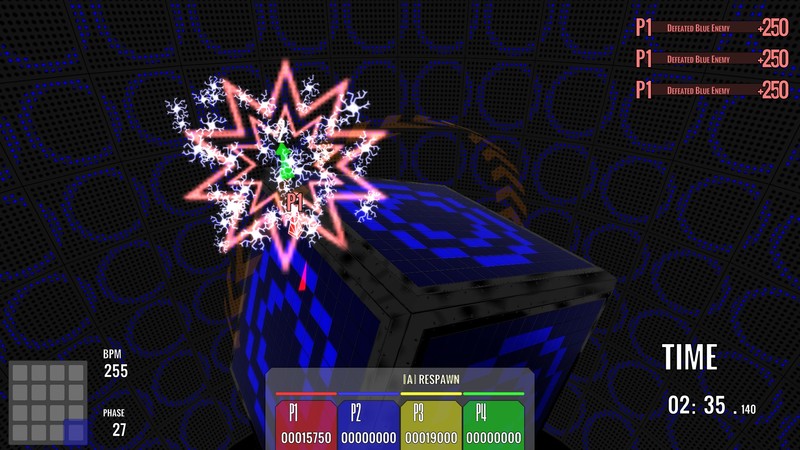Code Lyoko is a French animated television series created by Thomas Romain and Tania Palumbo and produced by the MoonScoop Group that premiered on France 3.The series centers on a group of teenagers who travel to the virtual world of Lyoko to battle against a malignant artificial intelligence known as X.A.N.A. Who threatens Earth with powers to access the real world and cause trouble. Roll up, roll up! It’s time to strap yourself in and prepare for a reel ride as you take to Big Wheel Wins online slots, right here at Mr Spin’s online casino.This carnival casino classic is fun-filled and ready to roll, with fairground Free Spins, wicked Wild symbols and two wheel-y great mini-games that could see you spinning in some huge multiplier prizes! Which software activation codes can Recover Keys 11.0.4.235 retrieve? We created Recover Keys to help you save your time and money. At the beginning, supported software list of RK was much shorter (only a few programs) but we keep adding new supported software and features (now Recover Keys can retrieve activation codes for 10,004 products). Mr Spin is operated by In Touch Games Limited of Fountain House, Great Cornbow, Halesowen, West Midlands, B63 3BL - 66. In Touch Games Limited is licensed and regulated in Great Britain by the Gambling Commission under account number 2091.
The T cell activation mediator
CD3 is a member of the immunoglobulin superfamily and acts as a mediator of signal transduction. It is a multimeric protein composed of four distinct polypeptide chains (ε, γ, δ, ζ). Each of these chains contain immunoreceptor tyrosine activation motifs (ITAMS) which are required for initiation of signaling cascades, as they recruit protein tyrosine kinases, signaling intermediates and adapter molecules. CD3 is expressed by a high-percentage of circulating peripheral T cells forming a complex with the T cell receptor (TCR). As CD3 is present at all stages of T cell development, it is a highly effective T cell marker. Read our CD3 mini-review for detailed information on CD3 including its structure alongside that of the TCR, the genes involved in its expression, its function and the signal transduction pathways mediated by the CD3 complex.
For more information about T cells refer to the following resources available:
- T cell overview; including antibodies available to this important immune cell
- T cell receptor mini-review for detailed information on TCR activation, signaling, development and diversity
- Human T cell lineage posters
- Human T cell marker selection and expression guide
- Mouse T cell lineage posters
- Mouse T cell marker selection and expression guide
CD3 is a multimeric protein complex serving as a T cell co-receptor. Being a defining feature of the T cell lineage, CD3 can be used as a marker for T cells. Anti-CD3 antibodies are therefore ideal for T cell characterization.
Here we look at anti-CD3 clones and their recommended applications.
Anti-human CD3 clones
- Clone CD3-12, specifically recognizes a conserved epitope within the cytoplasmic sequence of the human CD3ε chain. The epitope on the epsilon polypeptide is conserved among many species resulting in antibody clone, CD3-12, having a very broad species cross reactivity for the CD3 marker. Applications for this antibody include flow cytometry, immunofluorescence/immunocytochemistry, immunohistochemistry – frozen, immunohistochemistry – paraffin sections and western blotting
- Clone MEM-57 recognizes an extracellular epitope of the human CD3 complex containing either δ-ε or γ-ε subunit complexes (Dave et al. 1998). Applications for this antibody include flow cytometry and immunoprecipitation
- Clone UCHT1 binds to a region in the ectodomain of human CD3ε and has been shown to bind to a discontinuous epitope near an acidic region of CD3ε opposite the dimer interface; as shown by crystallographic studies of the CD3ε/δ dimer complexed with a single chain UCHT1 antibody fragment (Arnett et al. 2004). Applications for this antibody include flow cytometry and immunohistochemistry – frozen

Anti-mouse CD3 clones
- Clone KT3 may be used to trigger proliferation and cytotoxicity of CD3 positive cells. Applications for this antibody include flow cytometry and immunohistochemistry – frozen
- Clone 145-2C11 is useful for in vitro blocking and activation assays, as well as apoptosis induction and in vitro T cell depletions. Contrary to KT3, clone 145-2C11 induces cytokine release and morbidity in vivo (Vossen et al. 1995). Applications for this antibody include flow cytometry, immunofluorescence/immunocytochemistry, immunohistochemistry – frozen, immunoprecipitation and western blotting


Anti-rat CD3 clones
- Clone 1F4 has been demonstrated to induce proliferation of T cells in cell culture (Nicolls et al. 1993). Mouse anti-rat CD3, clone 1F4 does not react with rat B cells. Applications for this antibody include flow cytometry, immunohistochemistry – frozen, immunohistochemistry – paraffin sections and immunoprecipitation
CD3 antibodies are also available for dog, pig, chicken and Rhesus monkey.
Mr Spin Activation Code Free
CD3 antibody images by application

Flow cytometry
Anti-mouse CD3 V CD4

Fig. 1. RPE conjugated rat anti-mouse CD4 (MCA4635PE) and APC conjugated rat IgG2a isotype control.
Mr Spin Activation Code
Fig. 2. RPE conjugated rat anti-mouse CD4 (MCA4635PE) and APC conjugated rat anti-mouse CD3 (MCA500APC). All experiments performed on murine splenocytes in the presence of murine SeroBlock (BUF041A).
Mr Spin Activation Code Generator
Immunohistochemistry
Anti-human CD3
Fig 3. Staining of a formalin fixed paraffin embedded human tonsil with rat anti-human CD3 antibody, clone CD3-12 (MCA1477) following heat mediated antigen retrieval.